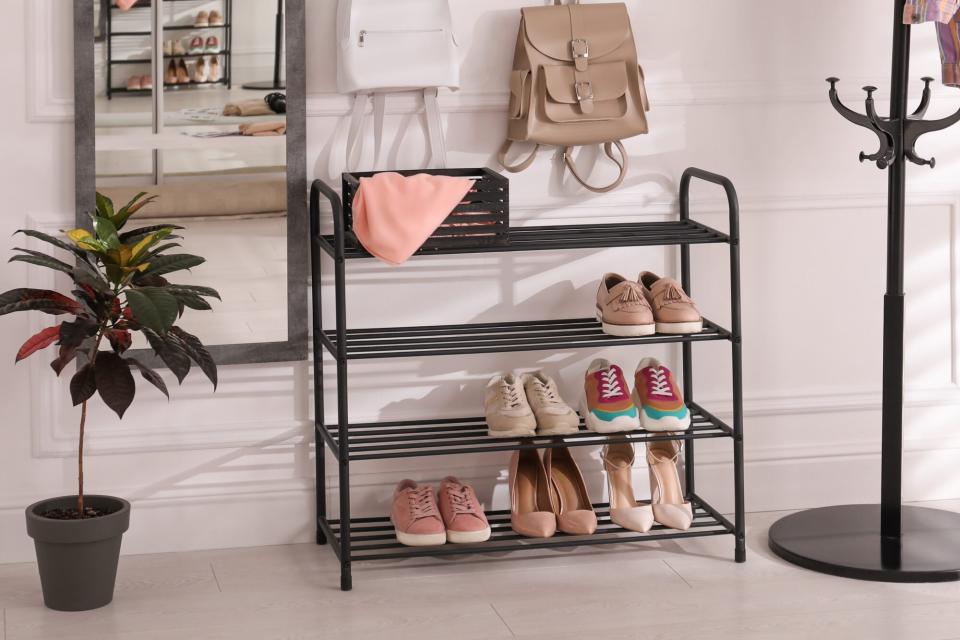The Best Ways to Keep Every Single Pair of Shoes Fresh and Odor-Free
Over time, well-loved shoes can develop odors that are difficult to conceal. This happens when sweat soaks through the materials of your shoes, allowing odor-causing bacteria to develop deep within. This doesn't mean that your shoes are destined for the trash or that you'll have to live with smelly soles forever. According to our expert, the best way to deal with shoe odor is to target the moisture buildup directly, both by allowing your shoes to dry out completely in-between wears and by treating them with moisture-proofing products. Ahead, how to tackle every pair in your closet, from casual, dress, and commuting shoes to exercise sneakers.

Liudmila Chernetska / Getty Images
Related: The Best Shoes to Wear During Long Walks
Smelly Feet, Stinky Shoes
According to podiatrist Timothy Oldani, DPM, FACFAS, the leading cause of odor in any type of shoe is moisture, "which leads to a multitude of problems, from odor-causing bacteria to fungal infections of the skin," he says. Limiting the amount of moisture in the bed and lining of your shoes is critical, he adds, something that you can achieve by wearing the right type of socks or stockings. Oftentimes, lighter-weight and moisture wicking materials, like cotton, can keep your feet from overheating in the first place.
Casual and Dress Shoes
The best way to limit excess moisture in high heels and casual shoes alike? Reduce the amount of sweat your foot creates while wearing them. Using an odor-absorbing powder, which can be purchased over the counter, is great a first step, Dr. Oldani explains. "If this is not successful, there are prescription medications that your podiatrist can prescribe to prevent excessive sweating," he notes.
Work and Athletic Shoes
Dr. Oldani says that work boots and athletic shoes are the most impacted by excess moisture, and are, therefore, often the smelliest pairs in our closets. "After use, these shoes should be placed in a well-ventilated area in an upright position," he says. "Then, use a disinfectant and deodorizer spray on the insole and liner." If your shoes or boots are particularly wet, he suggests removing the liners entirely; leave them out to dry over night. They should be complete moisture-free before you slip them back into your shoes.
The Stink Stops Here
If you're still experiencing sweaty (and smelly) shoes, Dr. Oldani says to stock up on products that protect the shoe's footbeds and liners. A waterproofing spray, for example, can seal both parts. "This can be very helpful in preventing moisture from ever penetrating the bed of the shoe, thus minimizing odor-causing bacteria from forming," he explains.

